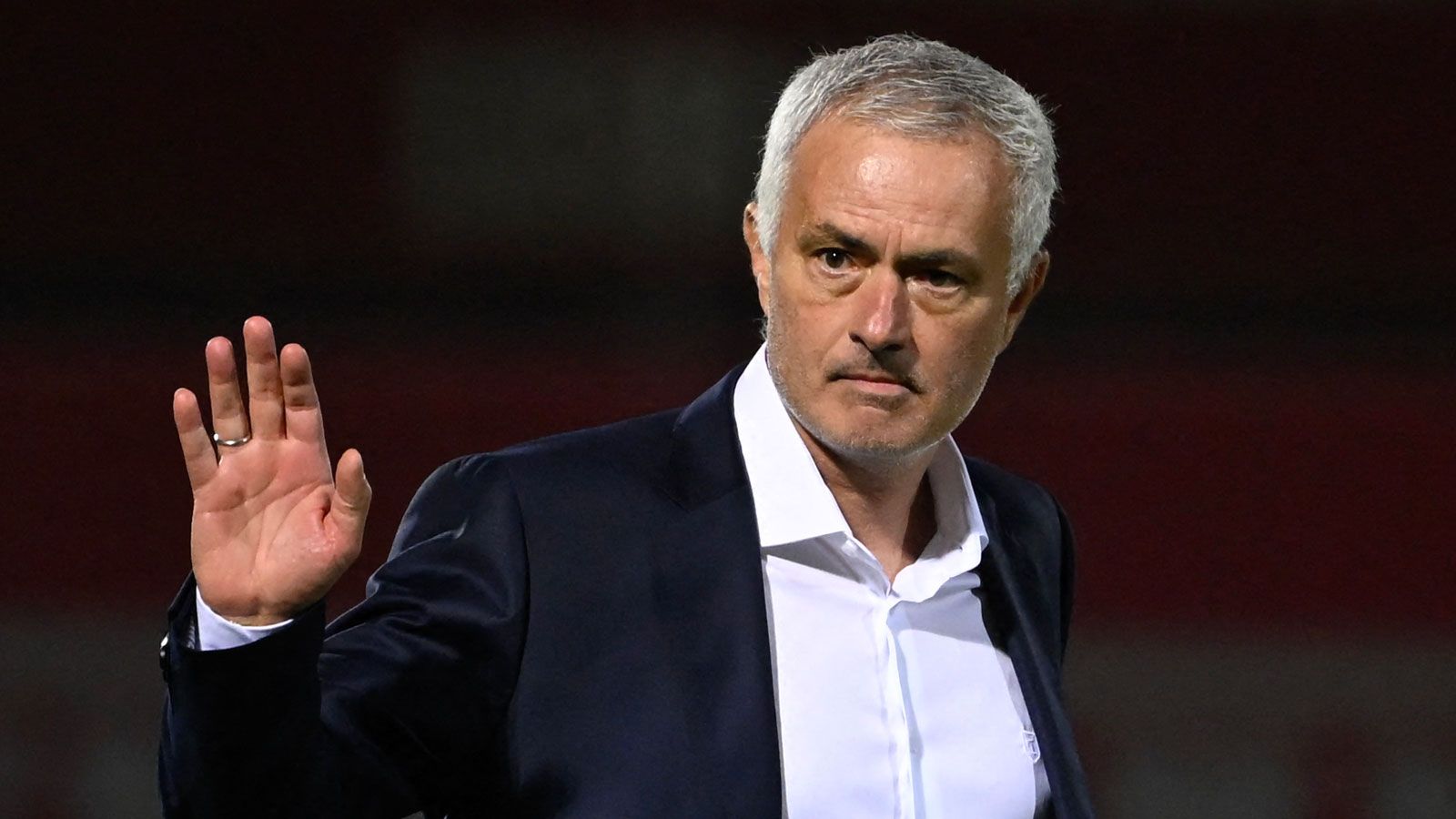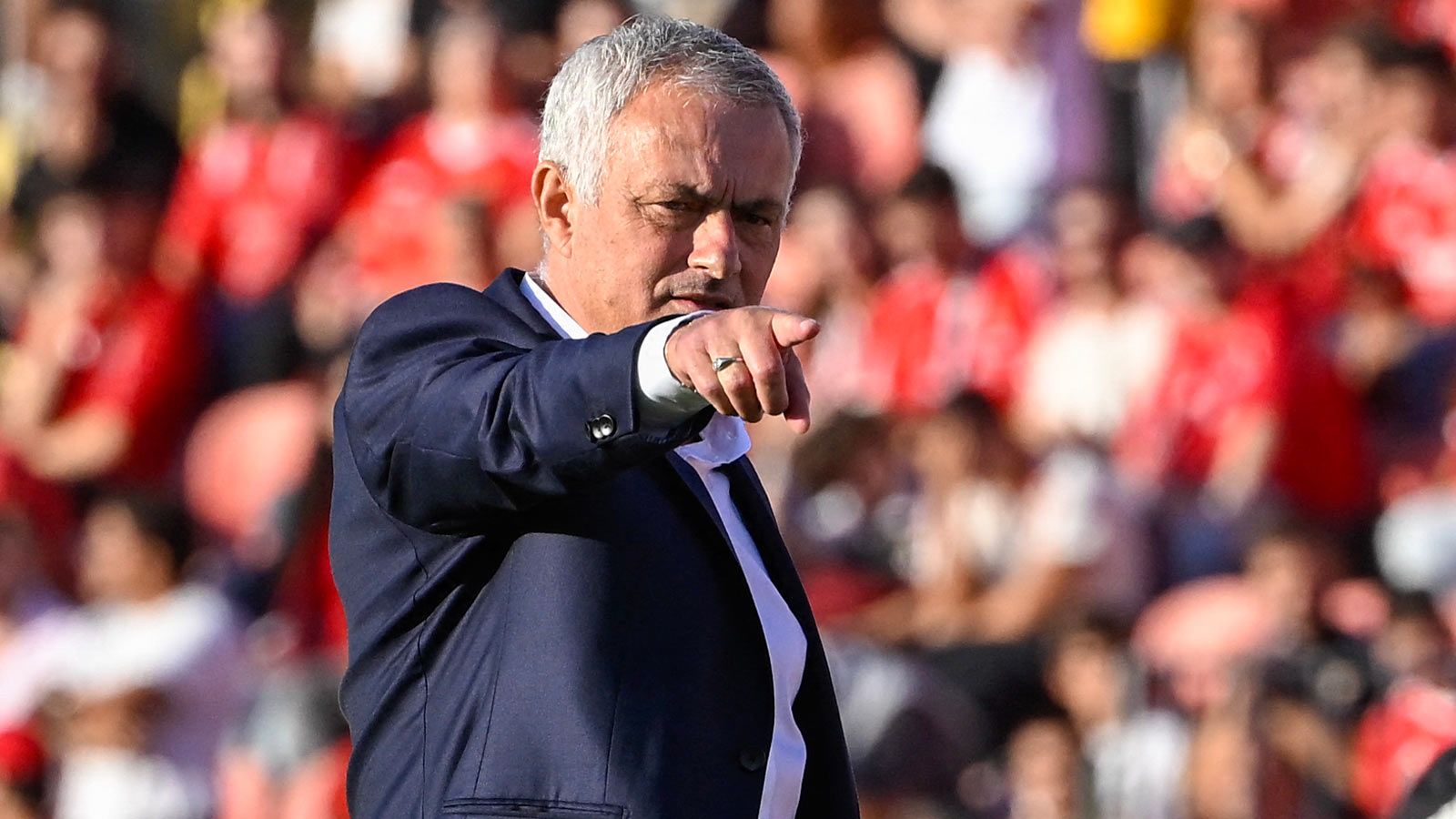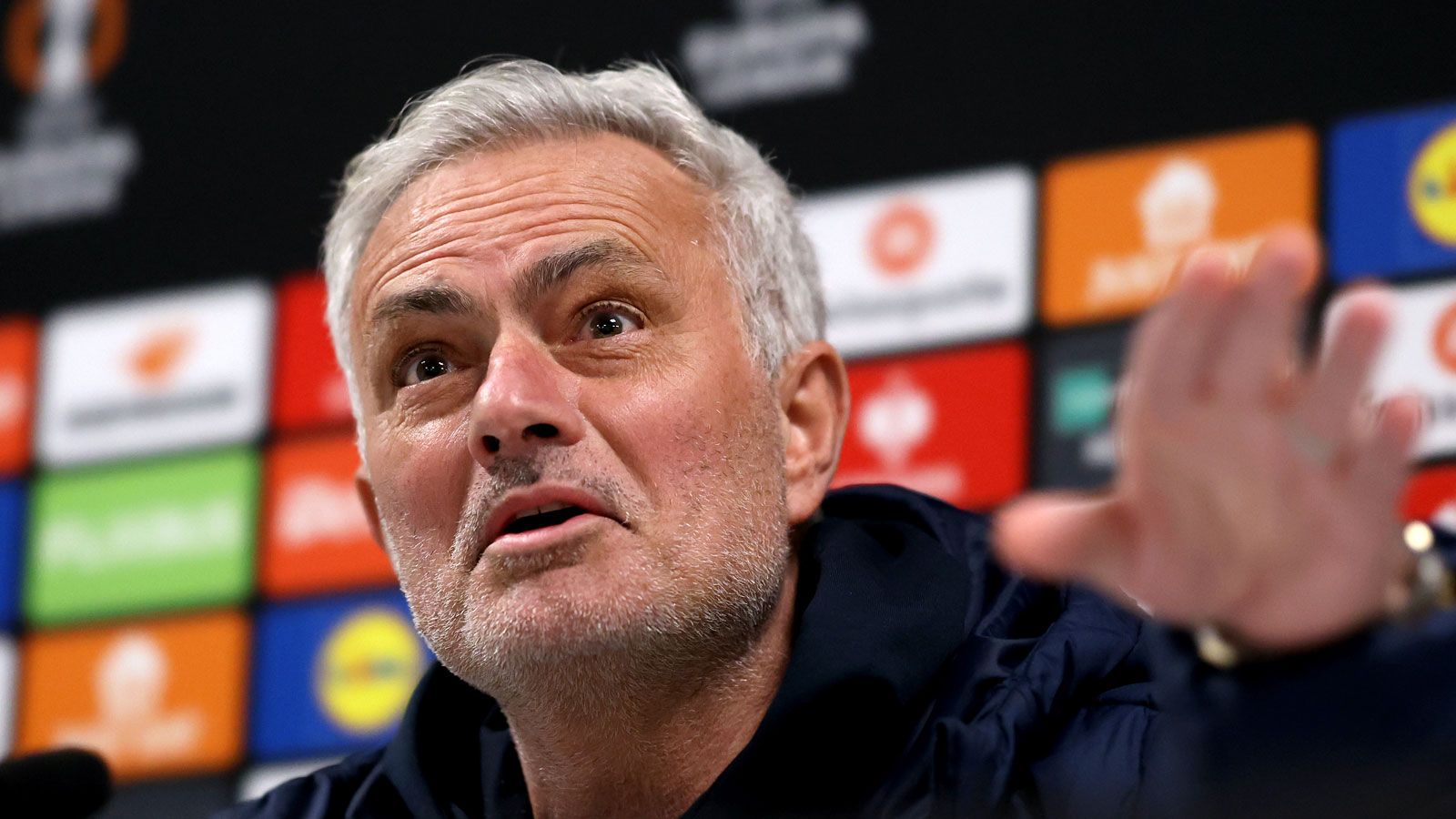Galatasaray Manager Buruk Delivers Scathing Take on Mourinho’s Legacy
In the world of football, rivalries often reveal deep insights into a coach’s evolution and focus. Jose Mourinho and Galatasaray manager Okan Buruk have become emblematic of such intense competition, especially after Buruk’s recent pointed remarks. Drawing from a detailed discussion, Buruk questions Mourinho’s ability to adapt in today’s game, highlighting their head-to-head clashes and the Portuguese tactician’s recent setbacks in Turkey.



The Heated Clash Between Two Coaching Titans
During a revealing conversation, Okan Buruk, now steering Galatasaray, offered a blunt evaluation of Jose Mourinho, the ex-Fenerbahce leader who has moved on to Benfica. Buruk argues that Mourinho hasn’t kept pace with contemporary coaching demands and lacks his former drive, painting a picture of a once-dominant figure struggling to stay relevant.
Reflecting on Last Season’s Title Battle
Buruk looked back at the fierce competition with Fenerbahce in the Turkish Super Lig, where his squad emerged victorious. This showdown underscored Buruk’s edge over Mourinho, both in matches and strategy, as Galatasaray claimed the crown despite Mourinho’s efforts to influence outcomes beyond the field.
Key Incidents Fueling Their Bitter Rivalry
The animosity between Mourinho and Buruk intensified over Mourinho’s brief time at Fenerbahce, marked by explosive moments. It started in February 2025 with Mourinho’s controversial remarks about the Galatasaray sidelines, triggering claims of discrimination, legal action by Mourinho, and subsequent disciplinary measures. The tension peaked during a tumultuous Turkish Cup quarter-final in April, ending in a 2-1 loss for Fenerbahce, where Mourinho’s physical gesture toward Buruk ignited a full-scale melee and multiple ejections. Although Buruk later conceded to overreacting in his response, Fenerbahce labeled it as theatrical, summing up their explosive dynamic.
Galatasaray’s Unbeaten Streak Against Fenerbahce
In their encounters, Buruk’s team maintained an impeccable record, securing two wins and a stalemate against Mourinho’s side on the way to a third straight league triumph. Buruk didn’t shy away from asserting his superiority, alluding to Mourinho’s well-known psychological tactics as ineffective in the face of solid performance.
Buruk’s Critique of Mourinho’s Coaching Philosophy
Taking aim at Mourinho’s methods, Buruk suggests the 62-year-old hasn’t adapted to the evolving landscape of football, sticking to outdated approaches despite his undeniable presence and appeal.
A Call for Continuous Improvement in Coaching
“He’s lost that earlier intensity and isn’t as immersed in the sport anymore,” Buruk remarked. “Mourinho hasn’t shifted his tactics over time. He’s got immense personality and charm, yet in football terms, constant self-improvement is essential. It’s possible his stagnation is holding him back.”
Galatasaray’s Push for European Glory
With Galatasaray solidifying their position as a domestic powerhouse, including a standout 102-point campaign in 2023-24, Buruk is shifting his gaze to continental competitions. The club has strengthened with key acquisitions like Leroy Sane, Ilkay Gundogan, and the full-time addition of Victor Osimhen, hoping to mirror the 2000 team’s UEFA Cup victory. As a former player from that era, Buruk is now pursuing a fourth consecutive league title to etch his name in history.
Upcoming Challenges and Personal Aspirations
As Mourinho gears up for his Champions League comeback with Benfica, including a matchup against his old team Chelsea, Buruk is eager for high-stakes European fixtures. Facing tough opponents like Liverpool, Atletico Madrid, and Manchester City, the 51-year-old views this as a prime chance to elevate his profile, with his sights set on eventually managing in the Premier League. This season represents a pivotal moment for Buruk to demonstrate his skills on the global stage.
The Recent Events in Turkish Football
In the intense world of Turkish Super Lig, the rivalry between Galatasaray and Fenerbahce has always been a hot topic, and recent events have only added fuel to the fire. Galatasaray manager Okan Buruk publicly rebuked Jose Mourinho following the Portuguese coach’s dismissal from Fenerbahce, highlighting the ongoing drama in Turkish football management. This incident underscores the high stakes involved in rebuilding reputation in Turkey, where every match and statement can shift public perception.
Buruk’s comments came after Mourinho’s abrupt exit from Fenerbahce, where he struggled to deliver results despite his storied career. As Buruk focuses on strengthening Galatasaray’s position, his remarks serve as a reminder of the competitive edge that defines Turkish football rivalries.
Galatasaray Manager’s Rebuke Explained
Okan Buruk’s rebuke of Jose Mourinho wasn’t just a personal slight; it reflected deeper frustrations within the league. Buruk, who has been instrumental in Galatasaray’s recent successes, criticized Mourinho’s tactics and leadership style, pointing out what he saw as a lack of adaptability to the Turkish football environment. This exchange has sparked widespread debate among fans and analysts about effective management strategies in high-pressure settings like the Turkish Super Lig.
Key points from Buruk’s statements include:
- The need for managers to understand local culture and fan expectations to truly succeed in Turkey.
- Mourinho’s failure to secure consistent wins, which Buruk attributed to outdated approaches in modern football.
- How such dismissals can disrupt team morale and league dynamics, affecting overall Turkish football reputation.
Buruk’s outspokenness is part of his broader effort to position Galatasaray as a dominant force, emphasizing the importance of Turkish football innovation in staying ahead of rivals.
Jose Mourinho’s Tenure at Fenerbahce
Jose Mourinho’s time at Fenerbahce was marked by initial excitement but ultimately ended in disappointment, leading to his dismissal and impacting his reputation in Turkey. Appointed in the summer of 2024, Mourinho brought his signature defensive style and charisma, but the team faltered in key matches, including European competitions. His dismissal highlighted the challenges foreign managers face when trying to rebuild their image in a new league.
During his stint, Mourinho dealt with internal pressures, such as player injuries and fan expectations, which many experts believe contributed to his downfall. This case serves as a cautionary tale for managers seeking opportunities in Turkish football, where cultural adaptation is as crucial as tactical prowess.
Impact on the Galatasaray-Fenerbahce Rivalry
The rivalry between Galatasaray and Fenerbahce has been amplified by this managerial clash, with Buruk’s comments intensifying the competition. In Turkish football, such events often lead to heightened matchday atmospheres and increased media coverage, drawing global attention to the Super Lig.
Benefits of this rivalry include:
- Boosting fan engagement and ticket sales, as supporters rally behind their teams.
- Encouraging strategic innovations, as managers like Buruk push for better performance to outshine competitors.
- Attracting international scouts and investors, enhancing the Turkish football economy.
From a broader perspective, this situation illustrates how managerial changes can influence team strategies and player development in Turkey.
Rebuilding Reputation in Turkey: Strategies for Success
For managers like Buruk, rebuilding reputation in Turkey involves a mix of on-field results and off-field diplomacy. After Mourinho’s dismissal, Buruk has focused on fostering team unity and leveraging local talent, which has helped Galatasaray climb the ranks.
Practical tips for football managers in similar situations:
- Adapt to local tactics: Study the Turkish Super Lig’s fast-paced style and integrate it with your philosophy to avoid Mourinho’s pitfalls.
- Build strong player relationships: Regular communication can prevent the internal rifts that plagued Fenerbahce.
- Engage with fans and media: Use social media and press conferences to shape your narrative, just as Buruk has done effectively.
- Focus on youth development: Investing in Turkish football academies can create long-term success and solidify your legacy.
These strategies not only help in personal reputation rebuilding but also contribute to the overall growth of Turkish football.
Case Studies from European Football
Looking at case studies, Mourinho’s experience mirrors other high-profile dismissals in European football. For instance, when Louis van Gaal was sacked by Manchester United, it led to a similar period of reflection and team restructuring. In Turkey, Buruk’s approach draws parallels to successful rebuilds like that of Slaven Bilic at Besiktas, where cultural immersion and tactical flexibility turned the tide.
Another example is Carlo Ancelotti’s tenure at Real Madrid, where adapting to league demands helped him rebuild his reputation. These case studies show that managers in Turkish football can learn from European successes by prioritizing resilience and innovation.
First-Hand Experiences from Turkish Football
Drawing from first-hand experiences shared by Turkish football insiders, the Mourinho dismissal has been a wake-up call. A former Fenerbahce player recounted how Mourinho’s intense training regimes initially motivated the squad but eventually led to burnout, underscoring the need for balanced management. Meanwhile, Galatasaray fans have expressed excitement about Buruk’s leadership, citing his hands-on approach as a key factor in their team’s resurgence.
These personal insights highlight the human element in Turkish football, where managers must navigate not just games, but also the passionate emotions of a dedicated fanbase. As Buruk continues to steer Galatasaray forward, his story offers valuable lessons for anyone involved in the sport.









